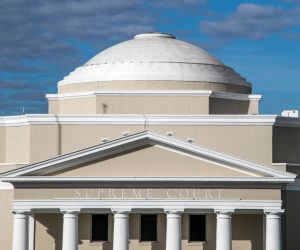
Insufficient Findings? Speak Now (In A Motion For Rehearing) Or Forever Hold Your Peace (On Appeal)
18
Insufficient Findings? Speak Now (In A Motion For Rehearing) Or Forever Hold Your Peace (On Appeal)
Effective immediately, the Florida Supreme Court recently amended Rule 1.530 of the Florida Rules of Civil Procedure and Florida Family Law Rule of Procedure 12.530 to add a requirement that in order to preserve an argument on appeal that the trial court’s findings were insufficient, you must address the sufficiency of the findings in a motion for rehearing.
The amendment and the new text are reproduced below.
These amendments clear up what was previously a district split on the issue of whether a motion for rehearing is necessary to preserve an argument on appeal that the trial court’s findings were insufficient.
In a lot of cases, this amendment won’t impact the appeal.
For instance, if a case is dismissed for failure to state a cause of action, it will be reviewed de novo on appeal, and any findings made by the trial court will not matter and would not need to be addressed in a motion for rehearing.
But in other cases, this amendment will have a huge impact on the appeal.
For instance, due to the recent amendments to the summary judgment rule, which require fact-finding by trial courts to support a summary judgment ruling, the inadequacy of those findings are ripe for attack on appeal. But after the recent amendment to the rehearing rule, you can’t mount such a challenge on appeal unless trial counsel challenged the lack of factual findings in a motion for rehearing.
The same is true for family law cases. Even where certain factual findings are already required by statute, after this recent amendment, trial counsel would still need to attack the lack of findings in a motion for rehearing to preserve the argument for appeal.
The exact ramifications of this amendment are yet-to-be-seen and time will tell how the amendment is interpreted in a given scenario. But for now, when in doubt, file that motion for rehearing!
Amendments to Rule of Civil Procedure 1.530 (Motions
for New Trial and Rehearing; Amendments of
Judgments) and Florida Family Law Rule of Procedure
12.530 (Motions for New Trial and Rehearing;
Amendments of Judgments)
The Florida Supreme Court, on its own motion, recently amended Florida Rule of Civil Procedure 1.530 (Motions for New Trial and Rehearing; Amendments of Judgments) and Florida Family Law Rule of Procedure 12.530 (Motions for New Trial and Rehearing; Amendments of Judgments). In re Amends. to Fla. Rule of Civil Procedure 1.530 and Fla. Family Law Rule of Procedure 12.530, No. SC22-756 (Fla. Aug. 25, 2022). The amendments clarify that filing a motion for rehearing is required to preserve an objection to insufficient trial court findings in a final judgment order.
The Court invites all interested persons to comment on the amendments, which are reproduced in full below and online at www.floridasupremecourt.org/SC22-756. All comments must be filed with the Court on or before November 8, 2022, as well as a separate request for oral argument if the person filing the comment wishes to participate in oral argument, which may be scheduled in this case. If filed by an attorney in good standing with The Florida Bar, the comment must be electronically filed via the Florida Courts E-Filing Portal (Portal). If filed by a nonlawyer or a lawyer not licensed to practice in Florida, the comment may be, but is not required to be, filed via the Portal. Any person unable to submit a comment electronically must mail or hand-deliver the originally signed comment to the Florida Supreme Court, Office of the Clerk, 500 South Duval Street, Tallahassee, Florida 32399-1927.
IN THE SUPREME COURT OF FLORIDA
IN RE: AMENDMENTS TO FLORIDA RULE OF CIVIL
PROCEDURE 1.530 AND FLORIDA FAMILY LAW RULE OF
PROCEDURE 12.530, CASE NO. SC22-756
FLORIDA RULES OF CIVIL PROCEDURE
RULE 1.530. MOTIONS FOR NEW TRIAL AND REHEARING;
AMENDMENTS OF JUDGMENTS
(a) Jury and Non-Jury Actions. A new trial may be granted to all or any of the parties and on all or a part of the issues. To preserve for appeal a challenge to the sufficiency of a trial court’s findings in the final judgment, a party must raise that issue in a motion for rehearing under this rule. On a motion for a rehearing of matters heard without a jury, including summary judgments, the court may open the judgment if one has been entered, take additional testimony, and enter a new judgment.
(b) – (g) [NO CHANGE]
Committee Notes
[NO CHANGE]
Court Commentary
1984 Amendment. [NO CHANGE]
2022 Amendments. The amendment to subdivision (a) does not address or affect, by negative implication, any other instance in which a motion for rehearing is or might be necessary to preserve an issue for appellate review.
FLORIDA FAMILY LAW RULES OF PROCEDURE
RULE 12.530. MOTIONS FOR NEW TRIAL AND REHEARING;
AMENDMENTS OF JUDGMENTS
(a) Jury and Non-Jury Actions. A new trial or rehearing may be granted to all or any of the parties and on all or a part of the issues. To preserve for appeal a challenge to the sufficiency of a trial court’s findings in the final judgment, a party must raise that issue in a motion for rehearing under this rule. On a motion for a rehearing of matters heard without a jury, including summary judgments, the court may open the judgment if one has been entered, take additional testimony, and enter a new judgment.
(b) – (h) [NO CHANGE]
Court Commentary
2022 Amendments. The amendment to subdivision (a) does not address or affect, by negative implication, any other instance in which a motion for rehearing is or might be necessary to preserve an issue for appellate review.
Appellate Litigation Specialists
Appellate specialization is necessary to successfully navigate the Federal Rules of Appellate Procedure. The Brownlee Law Firm specializes in both civil and criminal appeals at the state and federal level.
Contact us today for help with your appellate needs.
About This Author:




